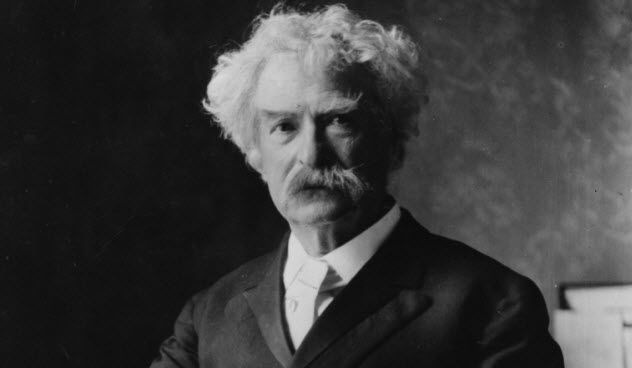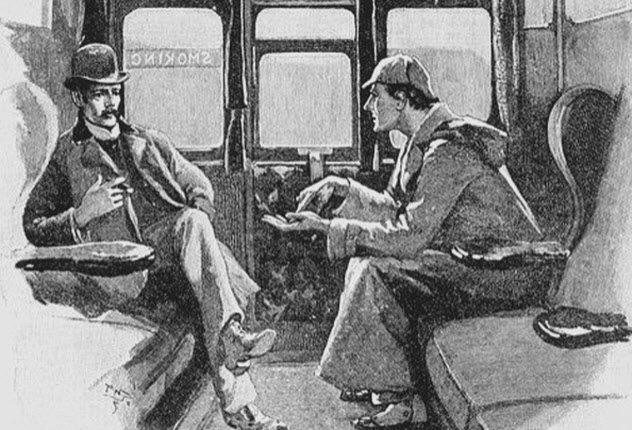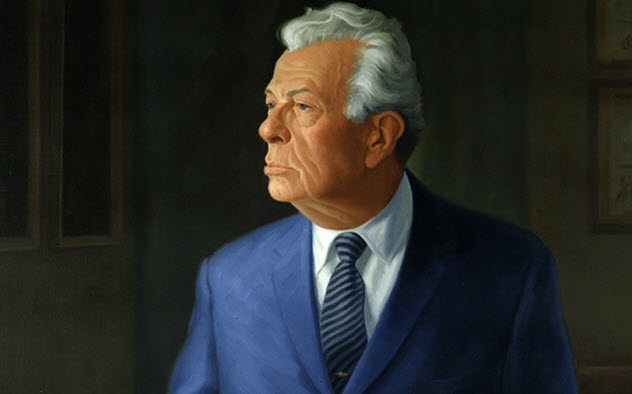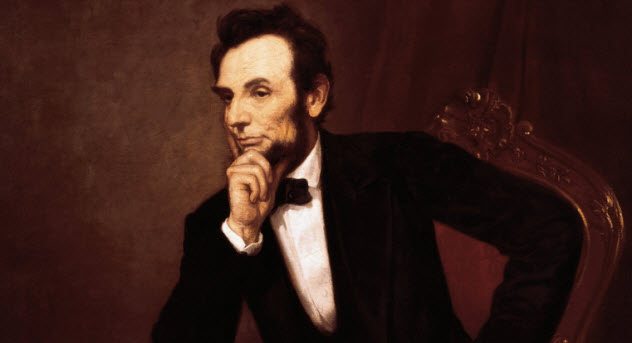 Movies and TV
Movies and TV  Movies and TV
Movies and TV  History
History 10 Dirty Government Secrets Revealed by Declassified Files
 Weird Stuff
Weird Stuff 10 Wacky Conspiracy Theories You Will Need to Sit Down For
 Movies and TV
Movies and TV 10 Weird Ways That TV Shows Were Censored
 Our World
Our World 10 Places with Geological Features That Shouldn’t Exist
 Crime
Crime 10 Dark Details of the “Bodies in the Barrels” Murders
 Animals
Animals The Animal Kingdom’s 10 Greatest Dance Moves
 Movies and TV
Movies and TV 10 Box Office Bombs That We Should Have Predicted in 2025
 History
History 10 Extreme Laws That Tried to Engineer Society
 History
History 10 “Modern” Problems with Surprising Historical Analogs
 Movies and TV
Movies and TV 10 Movie Adaptations That Ruined Everything for Some Fans
 History
History 10 Dirty Government Secrets Revealed by Declassified Files
 Weird Stuff
Weird Stuff 10 Wacky Conspiracy Theories You Will Need to Sit Down For
Who's Behind Listverse?

Jamie Frater
Head Editor
Jamie founded Listverse due to an insatiable desire to share fascinating, obscure, and bizarre facts. He has been a guest speaker on numerous national radio and television stations and is a five time published author.
More About Us Movies and TV
Movies and TV 10 Weird Ways That TV Shows Were Censored
 Our World
Our World 10 Places with Geological Features That Shouldn’t Exist
 Crime
Crime 10 Dark Details of the “Bodies in the Barrels” Murders
 Animals
Animals The Animal Kingdom’s 10 Greatest Dance Moves
 Movies and TV
Movies and TV 10 Box Office Bombs That We Should Have Predicted in 2025
 History
History 10 Extreme Laws That Tried to Engineer Society
 History
History 10 “Modern” Problems with Surprising Historical Analogs
10 Famous Quotes Everybody Knows—And Gets Wrong
“The trouble with quotes on the Internet is that it is difficult to tell whether they are genuine.”—Abraham Lincoln.
Darn right. It’s not just an Internet problem, either. You can often see the same mistakes in these old-fashioned information storage devices called books and newspapers. We think we know what these quotes mean and where they came from. But, in fact, most of us have it all wrong.
10 ‘The Plural Of Anecdote Is Not Data’

You’ll see this quote, unattributed, in the course of an argument. In fact, it’s become an Internet meme. The idea is that you cannot prove the truth of a general statement by using one personal experience where the statement appears to be true. You have to test it multiple times.
The problem is, the original quote was actually the opposite. Political scientist Raymond Wolfinger said, “The plural of anecdote is data” while teaching a graduate seminar at Stanford during the 1969–1970 school year.[1]
Since then, the quote has morphed into its current formulation. Academics are still debating which quote, the original or the modern one, is the more correct saying.
9 ‘Nobody Goes There Anymore—It’s Too Crowded’

This humorous line, allegedly about a popular restaurant, is attributed to Hall of Fame baseball player Yogi Berra, who was the source of many such quotes. He is also incorrectly cited as the source of many more, but this one is probably the best known.
While Berra might have repeated the joke, he didn’t coin the phrase. It had been in use for decades by the time he said it. The hallmark of a “Yogi-ism” is that the statement makes no sense if evaluated logically, but it does make sense in context.
If it meets that test, it doesn’t matter if Berra coined the phrase or not. As Berra (might have) put it, “I never said half the things I said.”[2]
8 ‘Let Them Eat Cake’

Marie Antoinette, the queen of France at the time of the French Revolution, supposedly said this when told that the starving peasants had no bread. It was cited to show her lack of concern for the commoners. But did she really say it or an equivalent phrase in French?
Apparently not.[3]
The closest equivalent phrase in French is: Qu’ils mangent de la brioche. (Brioche is not exactly cake, but it’s close enough in meaning.) This was first put into print by Jean-Jacques Rousseau in 1767, well before the revolution and when Marie Antoinette was still a child. No evidence exists that Marie Antoinette ever repeated it or a similar phrase.
7 ‘Better To Remain Silent And Be Thought A Fool Than To Speak And Remove All Doubt’

It sounds like something Mark Twain would say, doesn’t it?
Any folksy witticism does, which is why Twain is also incorrectly cited as the source of many such quotes. This one is a perfect example. It doesn’t appear in any of Twain’s writings, though. It shows up first in a 1907 book by Maurice Switzer.[4]
Some other examples of quotes incorrectly attributed to Twain are “Golf is a good walk spoiled,” “The coldest winter I ever spent was a summer in San Francisco,” and “A lie can travel halfway around the world while the truth is still putting on its shoes.”
6 ‘I Disapprove Of What You Say, But I Will Defend To The Death Your Right To Say It’

This one is incorrectly attributed to Voltaire, who was a fierce proponent of free speech but did not originate the quote.
Instead, this sentence was written by English author Beatrice Evelyn Hall in a 1906 book about Voltaire. She intended the quote to summarize Voltaire’s views but did not suggest that he had used the phrase.[5]
It’s easy to remember Voltaire’s name but hard to remember Hall’s—especially since she wrote under a pseudonym, S.G. Tallentyre.
5 ‘Money Is The Root Of All Evil’

Not quite. The desire of money is the root of all evils, according to 1 Timothy 6:10 of the Douay-Rheims Catholic Bible.[6]
The difference may be subtle, but it’s important. Having money isn’t the problem. It’s the nasty things done by people in pursuit of money that is the problem. People with money would prefer that you get it right.
4 ‘Elementary, My Dear Watson’

This was supposedly said by Sir Arthur Conan Doyle’s famous detective Sherlock Holmes to his assistant before giving a brilliant explanation of how Holmes solved the mystery. In fact, this exact phraseology appears in none of Conan Doyle’s short stories or novels about Sherlock Holmes, although it did appear later in a movie.
Although Holmes did say the word “elementary” to Watson on a number of occasions, Holmes never used that exact line.[7] It doesn’t stray too far from what Conan Doyle actually wrote, so it’s probably acceptable to use.
It’s much like the oft-misquoted movie lines “Play it again, Sam” (actual line: “Play it, Sam.”) and “Luke, I am your father” (actual line: “No. I am your father.”).
3 ‘Winning Isn’t Everything—It’s The Only Thing’

This quote is associated with the US football coach Vince Lombardi. It’s strange to begin with because “everything” and “the only thing” are synonymous in the context of the quote. So it basically says, “Winning isn’t everything, but it is.” Hardly the sort of pithy statement that you’d think would last. Yet it has.
Lombardi didn’t coin the phrase. It’s well-documented that it originated with football coach Henry “Red” Sanders of UCLA.[8] However, Lombardi used the phrase often as coach of the Green Bay Packers when they dominated professional football in the 1960s.
In addition to the original phrase, he sometimes used variants such as “Winning isn’t everything, but wanting to win is” and “Making the effort to win is the only thing.” The original formulation continues to be associated with Lombardi because he believed completely in its win-at-any-cost implications. He also believed that the attitude exemplified in the quote was the key to success.
2 ‘A Billion Here And A Billion There, And Pretty Soon You’re Talking Real Money’

This quote is commonly attributed to US Senator Everett Dirksen. It’s believable because we can conceive that only a Congressman would talk about such an astronomical number of dollars without considering it “real money.”
Apparently, Dirksen did say “a billion here, a billion there” in a statement at a press conference in 1962. But the last part of the phrase, the one that makes it funny, was not uttered by him. He claimed that it was added by a reporter. He did find it amusing after hearing about it, however, and may have repeated it.
Several people claimed that Dirksen did use the entire phrase while being interviewed by Johnny Carson on The Tonight Show in the 1960s, but tapes of the episode no longer exist. Even if he did say it, he may have been repeating a phrase that had been wrongly attributed to him earlier.[9]
1 ‘You Can Fool All Of The People Some Of The Time . . . ‘

The full quote is: “You can fool all of the people some of the time, and some of the people all of the time, but you can’t fool all of the people all of the time.”
Abraham Lincoln supposedly said this in a speech in Illinois in 1858. However, historians doubt that it originated with Lincoln. The first documented use of the quote didn’t appear until 1885, 20 years after Lincoln’s death. Also, the quote was not attributed to Lincoln until 1886 in a speech by a Prohibition politician.
Lincoln is alleged and incorrectly considered to be the source of many other lesser known quotes, including “You cannot help the poor man by destroying the rich,” “You cannot help men permanently by providing for them what they could and should do for themselves,” “If I were two-faced, would I be wearing this one?” and “I hope to have God on my side, but I must have Kentucky.”[10]
Read about more famous quotes that everyone gets wrong on 10 Famous Quotes Everyone Gets Wrong and 10 Famous Quotes That Are Often Misinterpreted.








